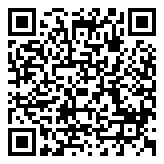
Fundamentals of Aids to Navigation in the Maritime Sector
Introduction
Marine Aids to Navigation are developed and harmonised through international cooperation and the provision of standards.
National legislation and regulations may also prescribe the obligations of Marine Aids to Navigation services providers, whether they are government or private.
Learning Outcome
- Understanding the reasons behind aid to Navigation in the Marine sector
- Understanding and be able to develop navigation planning and management
- Understanding the human element to the design and delivery
- Understand the marine navigation system and services
Course Content
Session 1: Training and Certification
- Training and assessment
- Competency certification and revalidation
- Mandatory training and certification
- Capacity building
Session 2: Marine aids to navigation planning
- Obligations and regulatory compliance
- International framework for the provision of VTS
- National competent authority and legislation and regulations for VTS
- Marine aids to navigation planning
- Risk management
- Gathering and use of historical AIS data
- Service requirements
- The future of visual marine aids to navigation
- Harmonisation of marine aids to navigation via the adoption of IALA Standards
Session 3: AtoN design and delivery
- Light and vision
- Design, Implementation & Maintenance
- Floating marine aids to navigation
- Safe working practices
- Providing AtoN Services in Extreme Climates
- Sustainability in AtoN provision.
- Delivery of maritime information via smart buoys and AIS-VDES base stations
- Heritage
- Impact of autonomous vessels on AtoN infrastructure
- Port Operations
Session 4: Radio-Navigation Services
- Satellite Positioning and Timing
- pace Based Augmentation Systems (SBAS)
- Terrestrial Augmentation Systems (DGNSS)
- Terrestrial radio-navigation services for GNSS resilience – conversion of existing DGNSS radio beacons for GNSS backup service
- Terrestrial radio-navigation services for GNSS resilience – Loran-C, Chayka, eLoran, eChayka
- Terrestrial radio-navigation services for GNSS resilience – R-Mode use of AIS or VDES shore stations
- Terrestrial radio-navigation services for GNSS resilience – FERNS Council
- Timing services
- Racon & radar positioning
- General view on harmonised resilient positioning
Session 5: Vessel Traffic Services
- Operations
- Interaction and cooperation of VTS with other national or regional allied services
- VTS Technology
- Autonomous vessels in a VTS area
Session 6: Digital Communications Technologies
- Harmonised connectivity/telecommunications
- Automatic Identification System
- VHF Data Exchange System (VDES)
- Other channels for the terrestrial broadcast of digital maritime service
- Maritime Connectivity Platform
Session 7: Information Services
- Data modelling
- Harmonised connectivity/information registries
- Delivery of Maritime Services/Implementation
- Digital services for autonomous vessels
- Cyber security
- IALA Dictionary



